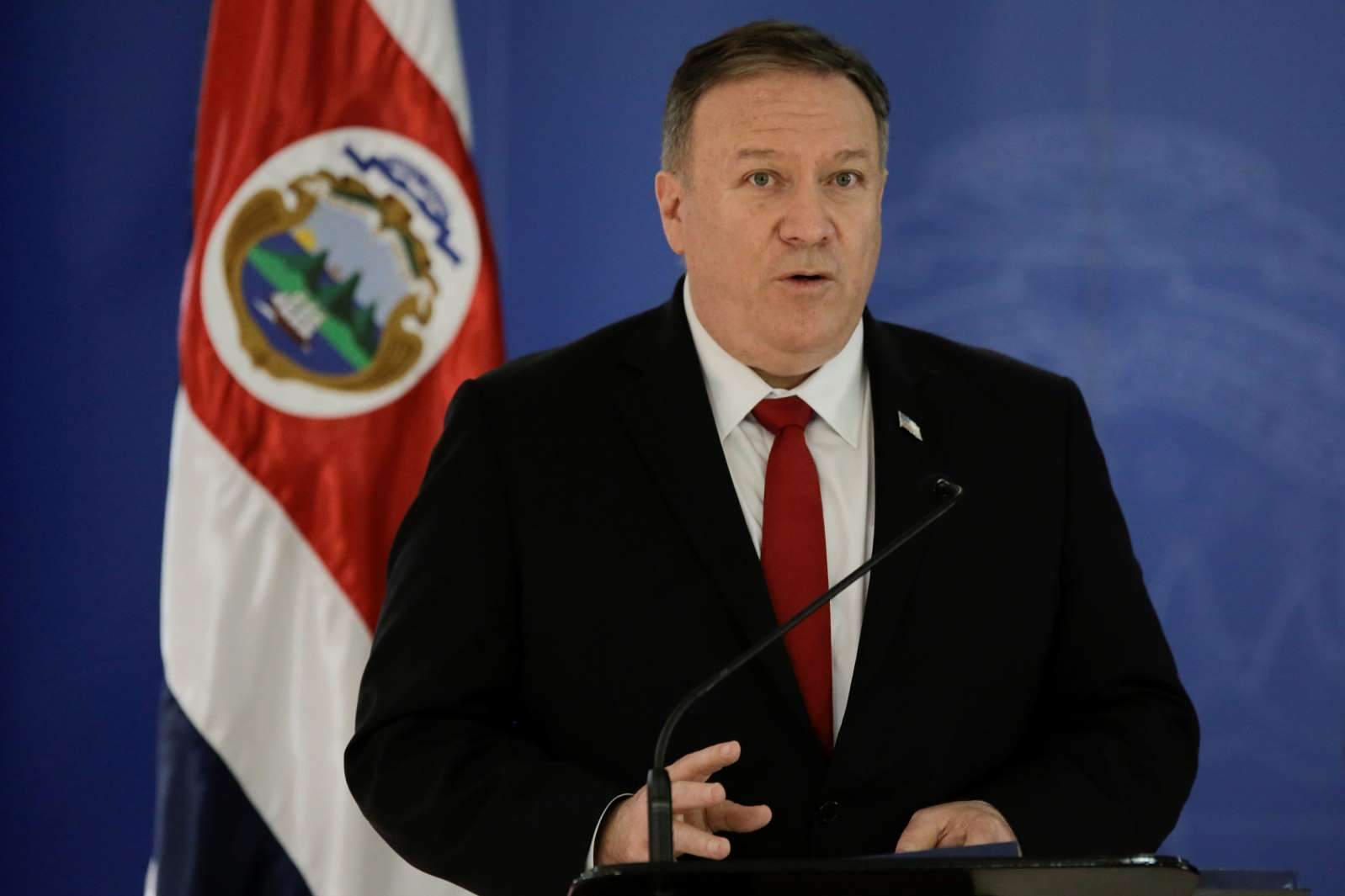Pompeo Says U.S. Remains Committed to Ending Ukraine Corruption

Secretary of State Michael Pompeo said the U.S. is committed to supporting Ukraine and stamping out corruption in the country, denying that President Donald Trump’s personal lawyer Rudy Giuliani oversaw a shadow foreign policy toward the country.
“The foreign policy we were executing then is the same foreign policy we are executing today,” Pompeo said in an interview with Bloomberg Television on Wednesday, when asked about Giuliani’s role. He said “Ukraine sits at the edge between democracy and tyranny in the easternmost part of Europe.”
Trump’s policy toward Ukraine and Giuliani’s role is a focus of the current impeachment trial in the Senate. Witnesses testified to House lawmakers in November that Giuliani circumvented the normal policy apparatus to demand that Ukraine investigate Democrat Joe Biden and his son as well as unsupported allegations that Ukraine -- not Russia -- sought to interfere in the 2016 presidential election.
Pompeo said he will visit Ukraine soon. He canceled a trip earlier this month amid tensions with Iran that led to the air strike that killed Iranian General Qassem Soleimani. Pompeo said the Trump administration has done more for Ukraine than the Obama administration did, a reference to Trump’s decision to sell lethal weaponry to the government.
“President Trump has taken actions to counter Russia that President Obama has refused to take,” Pompeo said.
In the interview, Pompeo decried the extent to which Hezbollah, the Iran-backed militant group, has spread around the world, including in Latin America. He declined to say whether the U.S. would support the new government in Lebanon -- where Hezbollah has long played a role in politics -- after a new cabinet was unveiled Tuesday.
“We’ll have to take a look at it, I don’t know the answer to that yet,” Pompeo said. “We’re prepared to engage, provide support, but only to a government that has committed to reform.”
To contact the reporters on this story: Nick Wadhams in Washington at nwadhams@bloomberg.net;Kevin Cirilli in Washington at kcirilli@bloomberg.net
To contact the editors responsible for this story: Bill Faries at wfaries@bloomberg.net, Larry Liebert, Justin Blum
Photo: © Reuters FILE: U.S. Secretary of State Mike Pompeo speaks during a joint news conference with Costa Rica's President Carlos Alvarado (not pictured) at the Presidential house in San Jose, Costa Rica January 21, 2020. REUTERS/Juan Carlos Ulate











